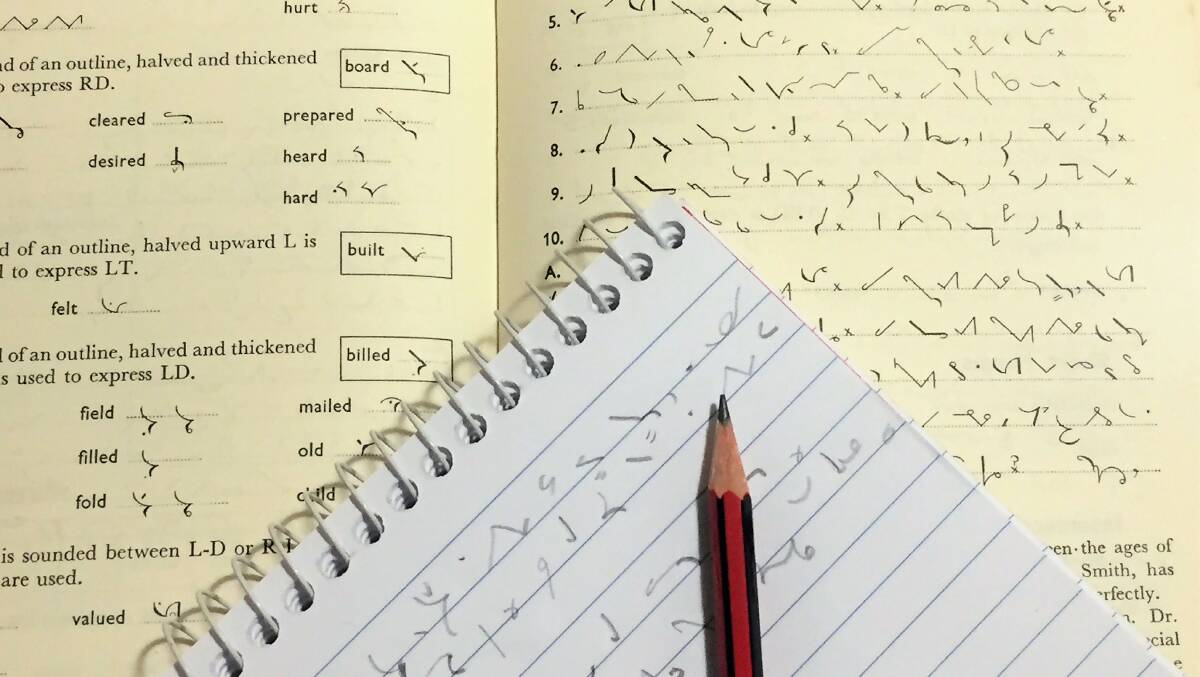
Many readers of The Senior will have learned Pitman shorthand at school. For much of last century it was a valuable tool in many different workplaces, but today technology has rendered it largely obsolete.
Create a free account to read this article
$0/
(min cost $0)
or signup to continue reading
Retired stenographer, personal assistant and teacher Carmel Taylor is helping older people revive their shorthand skills and apply them to brain training in her role as a volunteer tutor with U3A Melbourne City.
"Thousands of people learned shorthand during the '50s, '60s and '70s - I'm surprised how many people still have their school textbook; so many people with a skill that's now dormant," said Carmel, 63.
"I meet with eight other shorthand lovers each week to revise, read, work out puzzles in shorthand, even play bingo. Unlike when we were at school, our course has no exams or tests - just rejuvenation of the brain in a fun, social setting."
Carmel started running the "Revise Your Shorthand as you Train Your Brain" course this year.
Shorthand had clear cognitive benefits, she said. Today, stenographers around the world are maintaining mental fitness and assisting dementia prevention.
Using memory tests and MRIs over several years, German researchers found shorthand-writing stenographers maintained or even improved their memory as they aged. Many European stenography clubs and adult learning centres offer courses.
Carmel said participants at U3A Melbourne City have told her the sessions reinvigorate their minds and how surprised they are to find the skills come back to them so readily.
"When you're writing shorthand you use your short-term memory - storing words and word-imaging while making decisions very quickly. Revising and reviving dormant shorthand skills uses the long-term memory.
"Dementia Australia says participating in challenging activities in a social setting assists healthy mental ageing. Revising and writing shorthand ticks those boxes. Working memory, explicit memory, physical dexterity and concentration are all put to use when someone writes shorthand."
READ MORE: Big brains boost memory for 'super-agers'
READ MORE: Memory declining: study needs you

